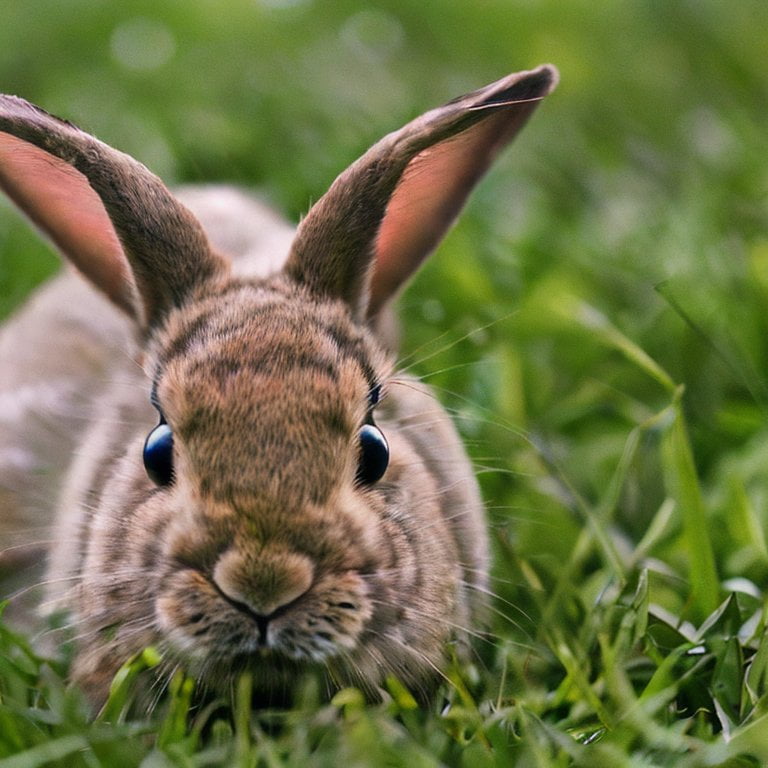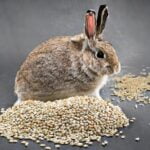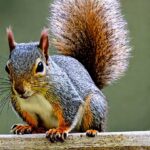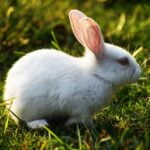
There are many small animals that eat plants as their primary source of food. These animals are known as herbivores and they play a crucial role in maintaining the balance of ecosystems by consuming and spreading plant seeds and helping to control plant growth.
In this post, we will look at examples of these small herbivore animals that eat plants in their diet.
Contents
What are Animals that Eat Plants Called?
Animals that eat plants are called herbivores. Keep in that these are animals that eat only plants, or mainly plants in their diets.
In contrast, animals that eat only meat or other animals are called carnivores. But there is a type of eater known as an omnivore that will eat both plants and meat in their diet.
In this post, we will just cover small animals that eat mainly plants, which are called herbivores. You can find examples of all herbivore animals at Animals that Eat Plants.
Examples of Small Animals that Eat Plants
All these animals are herbivores and play a vital role in maintaining the balance of ecosystems by consuming and spreading plant seeds and helping to control plant growth. They also provide food for predators and contribute to the overall biodiversity of an ecosystem. Some of these animals are facing habitat destruction, poaching and other human activities that threaten their survival, it is important to protect and preserve these species. (You can learn more about small animals that eat plants at Small Animals that Eat Plants – An Exploration)
Some examples of small animals that eat plants include:
Rabbits
Rabbits are small, herbivorous mammals that are known for their soft fur and long ears. They are primarily found in the wild and are known to eat a wide variety of plants, including grasses, clovers, and alfalfa. They play a vital role in maintaining the balance of ecosystems by consuming large amounts of vegetation and helping to control plant growth.
Squirrels
Squirrels are small, herbivorous mammals that are known for their bushy tails and agile movements. They are found in a wide variety of habitats and are known to eat a wide variety of plants, including seeds, nuts, fruits, and vegetables. They play a vital role in maintaining the balance of ecosystems by consuming and spreading plant seeds.
Chipmunks
Chipmunks are small, herbivorous mammals that are known for their distinctive stripes and energetic movements. They are found in a wide variety of habitats and are known to eat a wide variety of plants, including seeds, nuts, fruits, and vegetables. They play a vital role in maintaining the balance of ecosystems by consuming and spreading plant seeds.
Hedgehogs
Hedgehogs are small, herbivorous mammals that are known for their spiky fur and nocturnal habits. They are primarily found in the wild and are known to eat a wide variety of plants, including fruits, berries, and insects. They play a vital role in maintaining the balance of ecosystems by consuming large amounts of vegetation and helping to control plant growth.
Lemurs
Lemurs are small, primates that are found primarily in Madagascar. They are herbivorous and feed on a wide variety of plants, including leaves, fruits, flowers, and seeds. Lemurs play a vital role in maintaining the balance of ecosystems by consuming and spreading plant seeds and helping to control plant growth.
Porcupines
Porcupines are small, herbivorous mammals that are known for their spiky quills. They are found in a wide variety of habitats and are known to eat a wide variety of plants, including tree bark, leaves, and fruits. They play a vital role in maintaining the balance of ecosystems by consuming large amounts of vegetation and helping to control plant growth.
Sloths
Sloths are small, herbivorous mammals that are known for their slow movements and ability to hang upside down. They are found in the rainforests of Central and South America and are known to eat a diet primarily of leaves and fruits. They play a vital role in maintaining the balance of ecosystems by consuming large amounts of vegetation and helping to control plant growth.
Pangolins
Pangolins are small, scale-covered mammals that are found in Africa and Asia. They are primarily herbivorous, feeding on ants and termites as well as fruits and vegetables. They play a vital role in maintaining the balance of ecosystems by consuming large amounts of insects and helping to control their population.
Deers
Deers are small to medium-sized mammals known for their grace and agility. They are herbivorous and feed on a wide variety of plants including leaves, twigs, and fruits.
Koalas
Koalas are small marsupials that are native to Australia. They are herbivorous and feed almost exclusively on eucalyptus leaves.
Capybaras
Capybaras are large, herbivorous rodents that are native to South America. They feed on a wide variety of aquatic and terrestrial plants, including grasses and aquatic plants.
Gophers
Gophers are small, herbivorous rodents that are known for their burrowing habits. They feed on a wide variety of plants, including roots, leaves, and stems.
Prairie dogs
Prairie dogs are small, herbivorous mammals that are native to the Great Plains of North America. They feed on a wide variety of plants, including grasses, forbs, and succulents.
Beavers
Beavers are large, herbivorous mammals known for their dam-building habits. They feed on a wide variety of plants, including bark, twigs, and leaves from trees and bushes.
Muskrats
Muskrats are small, herbivorous mammals that are known for their aquatic habits. They feed on a wide variety of aquatic plants, including cattails, lily pads, and bulrushes.
Marmots
Marmots are large, herbivorous rodents that are native to North America. They feed on a wide variety of plants, including grasses, forbs, and succulents.
Voles
Voles are small, herbivorous rodents that are known for their burrowing habits. They feed on a wide variety of plants, including grasses, forbs, and succulents.
Lemmings
Lemmings are small, herbivorous rodents that are known for their burrowing habits. They feed on a wide variety of plants, including grasses, forbs, and succulents.
Gerbils
Gerbils are small, herbivorous rodents that are known for their burrowing habits. They feed on a wide variety of plants, including grasses, forbs, and succulents.
Pika
Pika are small mammals that are also known as rock rabbits or mouse hares. They are found in high-altitude and alpine regions of the world and eat mostly grasses, mosses, lichens, and other small plants.
Final Thoughts
These were examples of small herbivore animals, which are animals that eat mainly plants in their diet.
Lance has been passionate about the plant-based diet and we have been following a whole food plant-based diet for over 5 years. We focus on health, natural healing, weight management, animal rights, and the health of the planet and environment by focusing on whole plant-based foods and sustainable practices.
Learn more at the About Me page and follow on social media at the links below.



